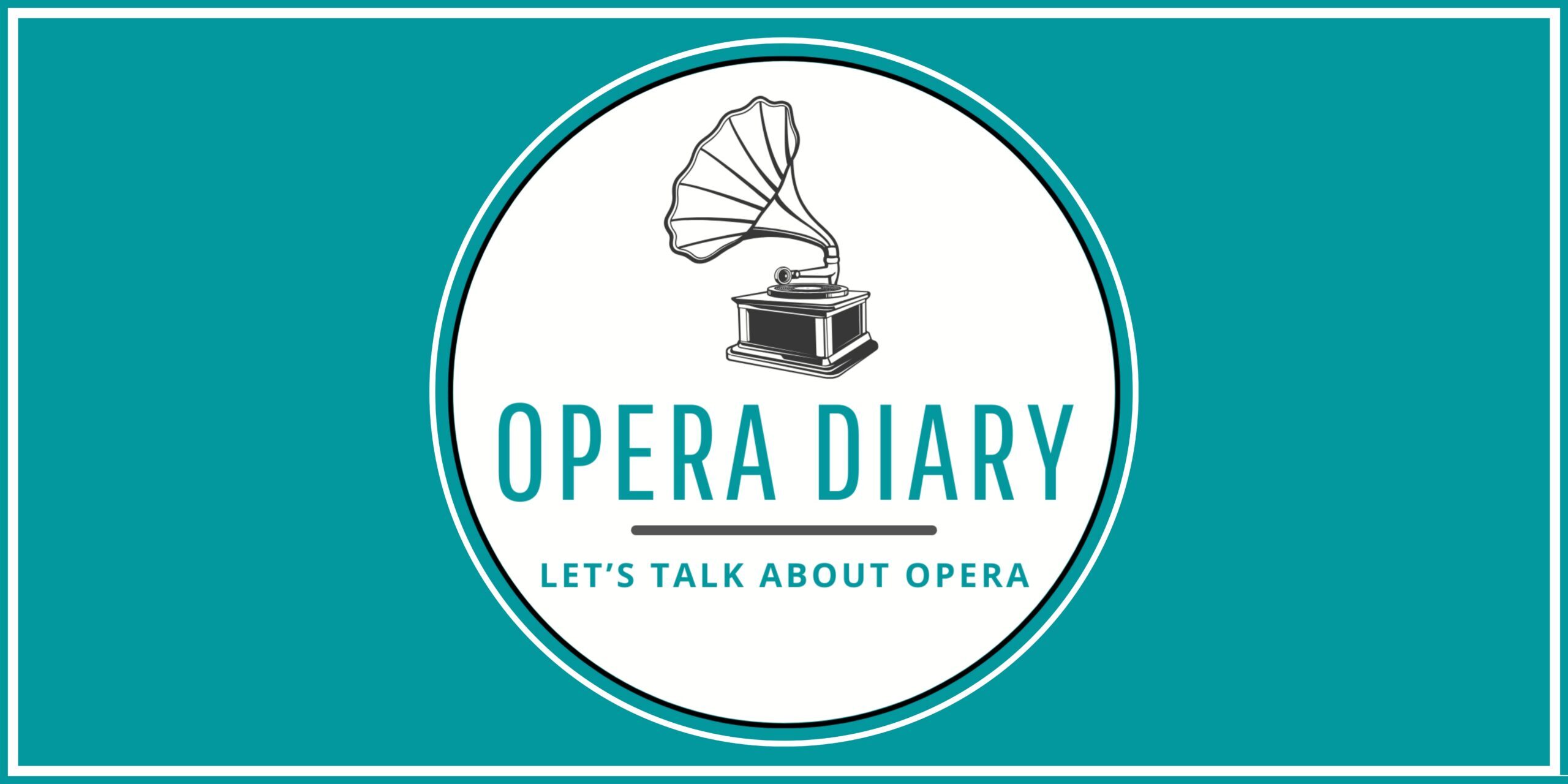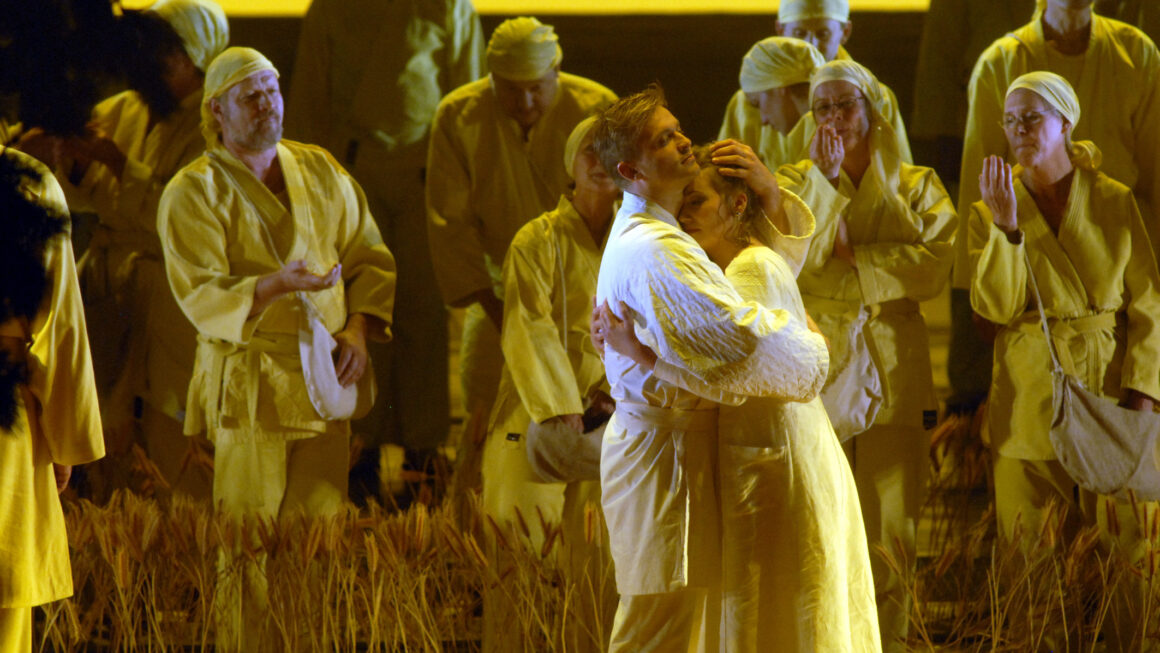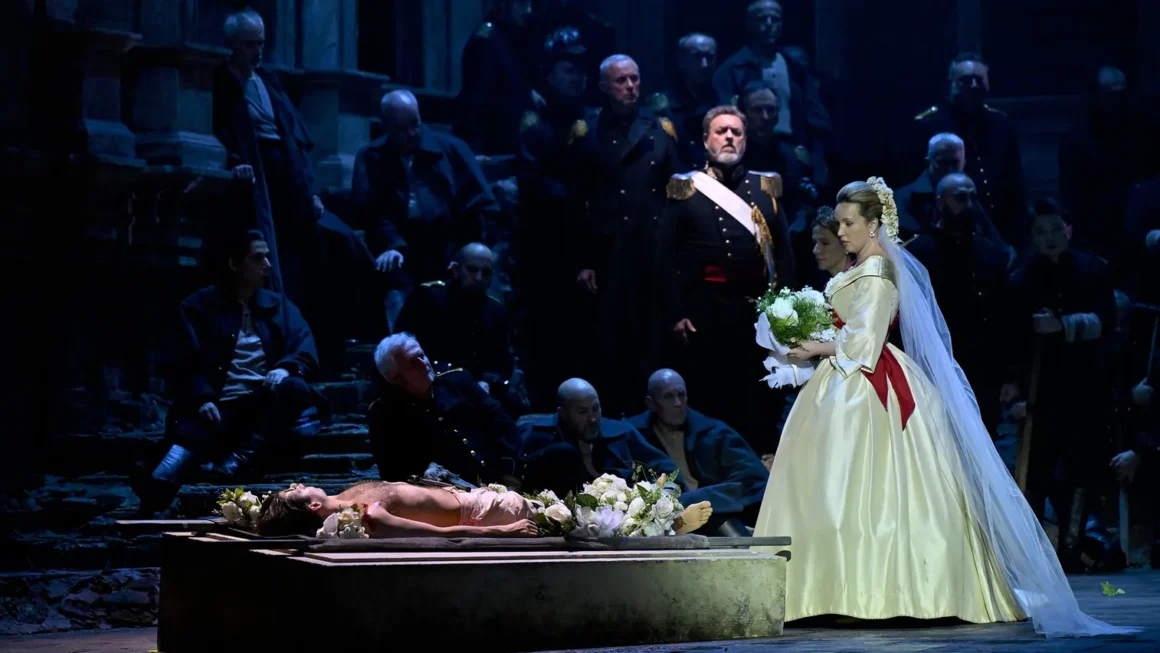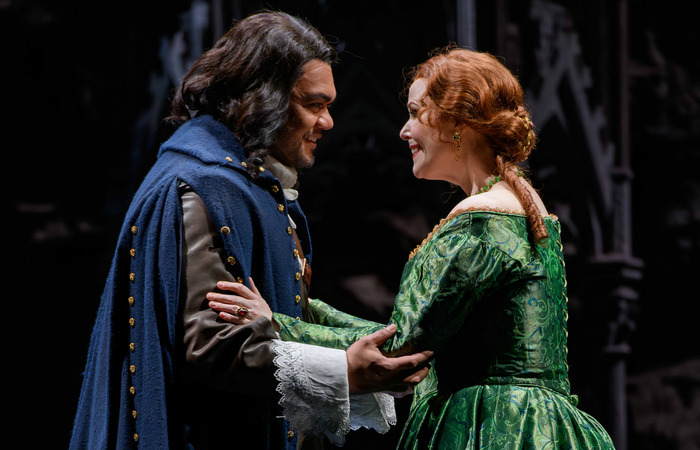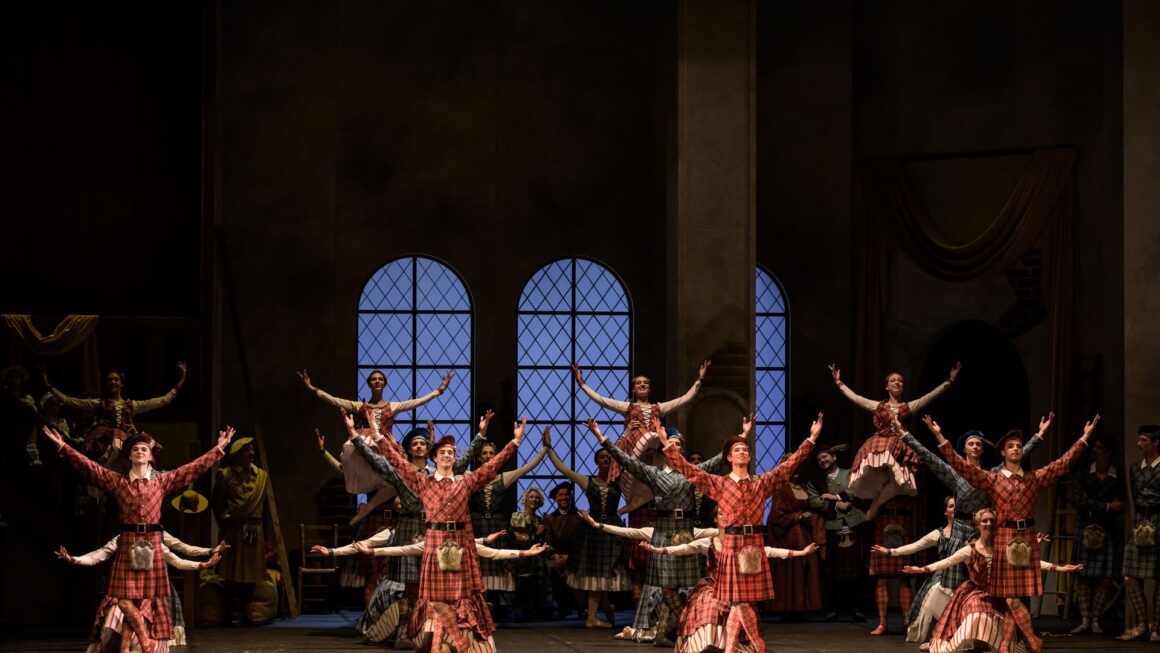There are works that, regardless of the circumstances in which you hear them, make you happy. They allow you to change your state of mind and realise that, despite everything that may happen, they are there to show you that other perspectives are possible. Anyone who listens to the absolute masterpiece that is Zauberflöte will recognise this. Wherever you are, these melodies remind you of the existence of beauty beyond all sadness and sorrow.
Mozart, more than any other composer, demonstrates the full range of possibilities that music has to offer. In order for it to be a source of such numerous and diverse intentions, he demands a complete absence of excess of any kind. What is more, Mozart’s art has the ability to expose any technical or intentional flaws. The slightest slip-up is not only noticeable but also detrimental to the balance of the stage and musical action. For this reason, more than in any other repertoire, it is imperative to be quite sure of one’s intentions and understanding of the text and music before tackling his works.
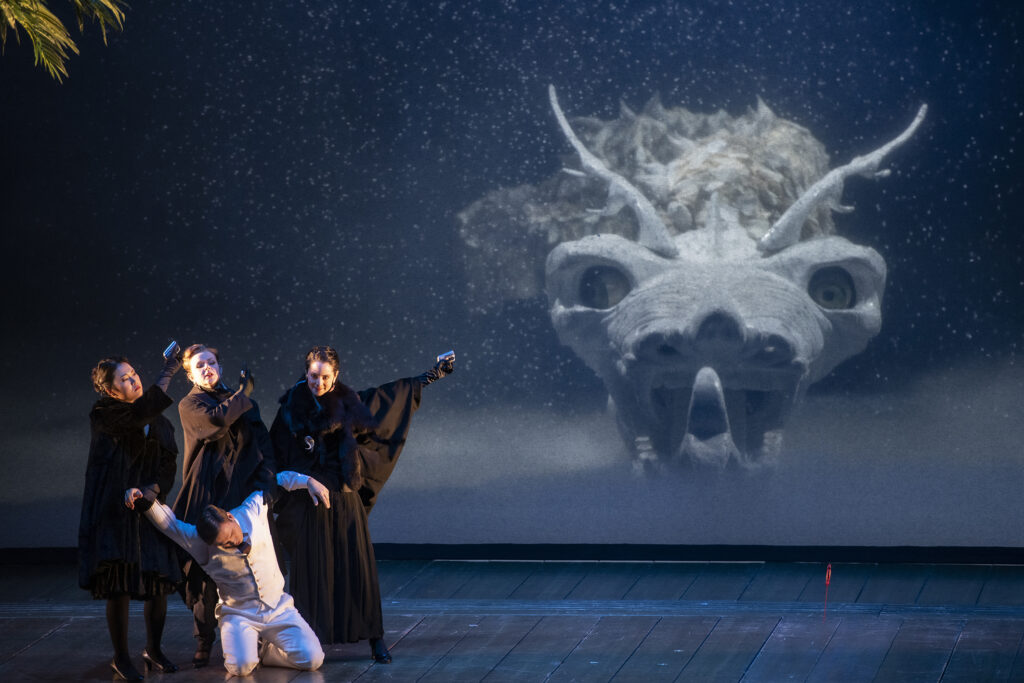
In the staged production (signed by Günter Krämer) at the Deutsche Oper Berlin, a feast of gaiety and emotion emerged from the pit and the stage. Unsurprisingly, the audience was eclectic: from children to the elderly, the hall was packed to listen to this music capable of working miracles. To achieve this, conductor Anna Handler, at the helm of the Orchester der Deutschen Oper Berlin, skilfully channelled all the sensitivity and delicacy required by this magical musical universe, without compromising on her vibrant enthusiasm. Her infinite respect for a work which, when performed according to the rules defined by the composer, justifies the raison d’être and undiminished success of this masterpiece.
Whenever called upon to perform, the Chor der Deutschen Oper Berlin (under the direction of Thomas Richter) is able to reveal its undeniable talents, confirmed both in moments of sheer power and during its gentlest performances.
Tamino comes to life in the performance of tenor Kieran Carrel, whose soft, velvety voice has beautiful projection that never loses the great tenderness that characterises him. At his side is Nina Solodovnikova’s Pamina, whose agility and power foreshadow a great lyric soprano in the making. Hye-Young Moon takes on the role of the Königin der Nacht. A few details relating to the accuracy of her articulation were improved during the evening, allowing her to demonstrate her beautiful agility, with perfectly satisfactory projection. In her Der Hölle Rache kocht in meinem Herzen, everything was there: beauty, accuracy and the power necessary to convey the character’s rage and reach every member of the audience. A superb performance, as was that of the Damen, played by the excellent Flurina Stucki, Karis Tucker and Aleksandra Meteleva.
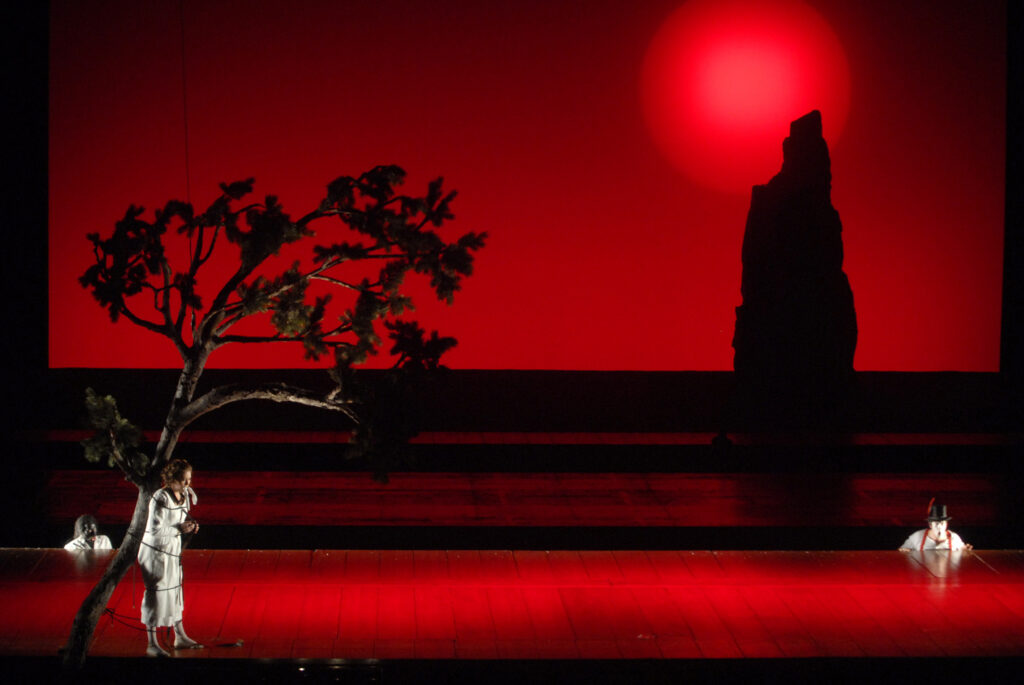
Artur Garbas has the task of bringing to life a Papageno who is full of life, brimming with humour, with a beautiful, rich, broad and warm voice. At his side, Hyejin Lee embodies a mischievous Papagena, delightfully amusing, with a sweetness and virtuosity that ensure the two singers complement each other perfectly. The handsome bass Tobias Kehrer brings Sarastro to life, valiantly attuning his beautiful vocal instrument to Mozartian elegance and grace. A very successful exercise, as his performances are deeply moving. The same can be said of the excellent Padraic Rowan’s portrayal of the Sprecher, while Benjamin Dickerson and Jörg Schörner rise to the challenge of bringing the expected touch of buffoonery to their respective roles as 1. Priester and 2. Priester – something we also see in Burkhard Ulrich’s remarkable entrance as Monostatos. We also salute the performances of Hong-Kyun Oh (1. Geharnischter) and Volodymyr Morozov (2. Geharnischter), who contributed to the success of this wonderful evening.
In this staged fairy tale, we joyfully witness the desire to do things well, not out of ostentation, but out of respect for the audience and the score. The determination to touch every member of the audience, from the youngest to the most experienced, shows that the Deutsche Oper Berlin has not lost sight of the main objective of opera: to move its audience through sound, text and image – in this case, thanks to one of the works best suited to this wonderful mission.
:::::::::::::::::::::::::::::::::::::::::::::::::::::::::::::::::::::::::::::::::::
DIE ZAUBERFLÖTE
Singspiel in two acts by Wolfgang Amadeus Mozart (K.620)
Libretto by Emanuel Schikaneder
Anna Handler | Conductor · Thomas Richter | Chorus Director · Günter Krämer | Director · Andreas Reinhardt | Stage- and costume-design
Cast: Tobias Kehrer | Sarastro · Kieran Carrel | Tamino · Padraic Rowan | Sprecher · Benjamin Dickerson | 1. Priester · Jörg Schörner | 2. Priester · Hye-Young Moon | Königin der Nacht · Nina Solodovnikova | Pamina · Flurina Stucki | Erste Dame · Karis Tucker | Zweitte Dame · Aleksandra Meteleva | Dritte Dame · Hyejin Lee | Papagena · Artur Garbas | Papageno · Burkhard Ulrich | Monostatos · Hong-Kyun Oh | 1. Geharnischter · Volodymyr Morozov | 2. Geharnischter · Solisten des Tölzer Knabenchores · Chor der Deutschen Oper Berlin · Orchester der Deutschen Oper Berlin. Cover photo credit: ©Bettina Stöß
(For further informations) Link to the Deutsche Oper Berlin website: Die Zauberflöte
